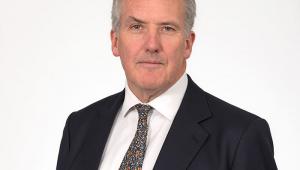By Alex Klaushofer
The government’s decision to cap the pay rises of senior public service executives has angered civil servants’ representatives.
The government’s decision to cap the pay rises of senior public service executives has angered civil servants’ representatives.Prime Minister Gordon Brown announced on March 31 that senior civil servants, NHS managers and judges will receive rises of only 1.5% in 2009/10, significantly lower than the recommendations by the Senior Salaries Review Body of 2.6% for judges and 2.1% for the other sectors.
But senior army officers are to get the full 2.8% recommended by the SSRB in recognition of their work in Iraq and Afghanistan, while teachers will receive their recommended increase of 2.3%.
FDA general secretary Jonathan Baume said that the government had chosen to limit pay rises for senior civil servants because it saw them as ‘easy targets’.
‘This is gratuitous — if sadly predictable — gesture politics. The money saved is small but is a slap in the face for senior civil servants who face ever greater pressure in supporting ministers in these turbulent times,’ he said.
He added that the union was now seeking assurances from the government that it intended to honour a settlement for senior civil servants of 7% over three years.
Meanwhile, Brown revealed plans to ‘fundamentally reform’ early retirement and severance terms for all civil servants. He also froze ministers’ pay, saying it was ‘important in the present economic climate that senior staff in the public sector show leadership in the exercise of pay restraint’.
But he has not asked MPs to accept less than their recommended rise of 2.33%, which brings their salaries – before allowances – to around £64,766.
The decision comes as the Committee on Standards in Public Life announced it would bring forward its review of MPs’ allowances, originally due to report to the next Parliament, after Brown requested a speedier review.
‘The situation has changed quite dramatically over the last few months and I am pleased that there is now such widespread political consensus on the need for reform,’ said the committee’s chair, Sir Christopher Kelly. ‘I hope that this will translate into full acceptance of our recommendations by all the main political parties – challenging though they are likely to be.’ The committee plans to publish its report towards the end of the year.
During Commons questions on April 1, Brown said he was willing to hold a meeting with Opposition leader David Cameron and Nick Clegg, the Liberal Democrat leader, to discuss MPs’ expenses, but reforms must await the conclusion of the review.



















